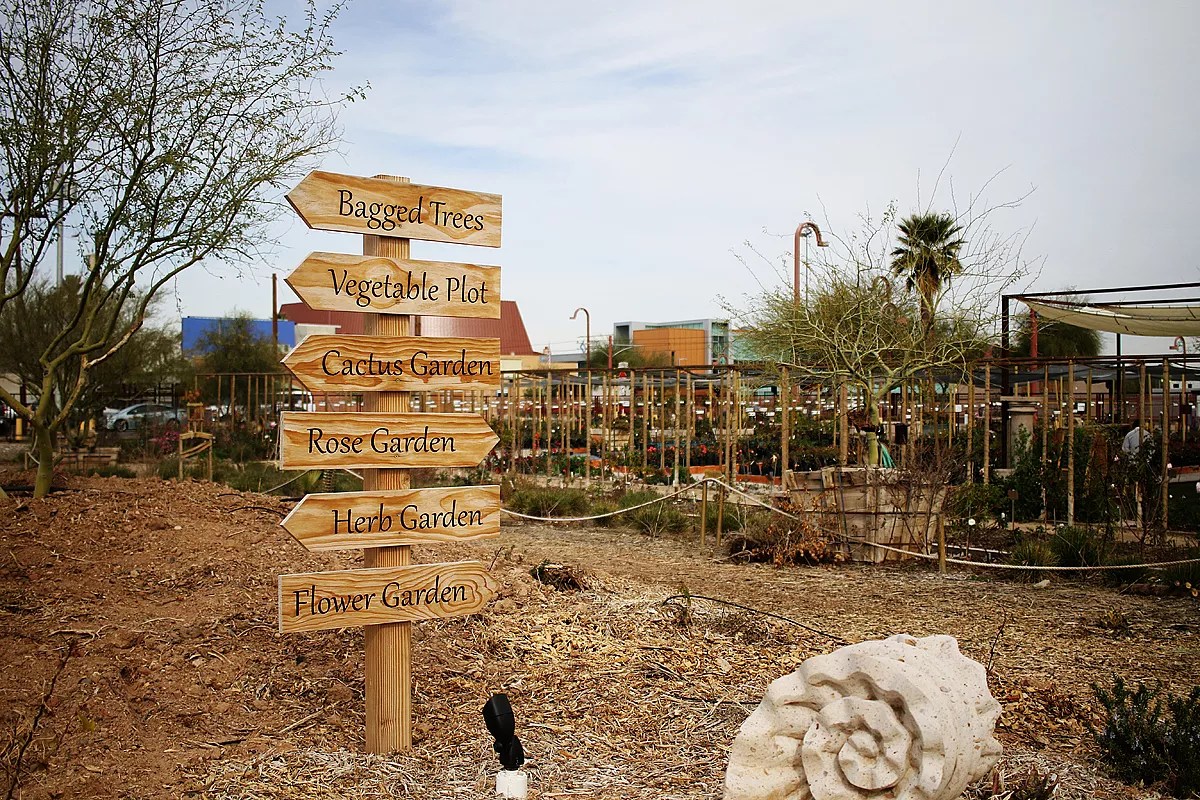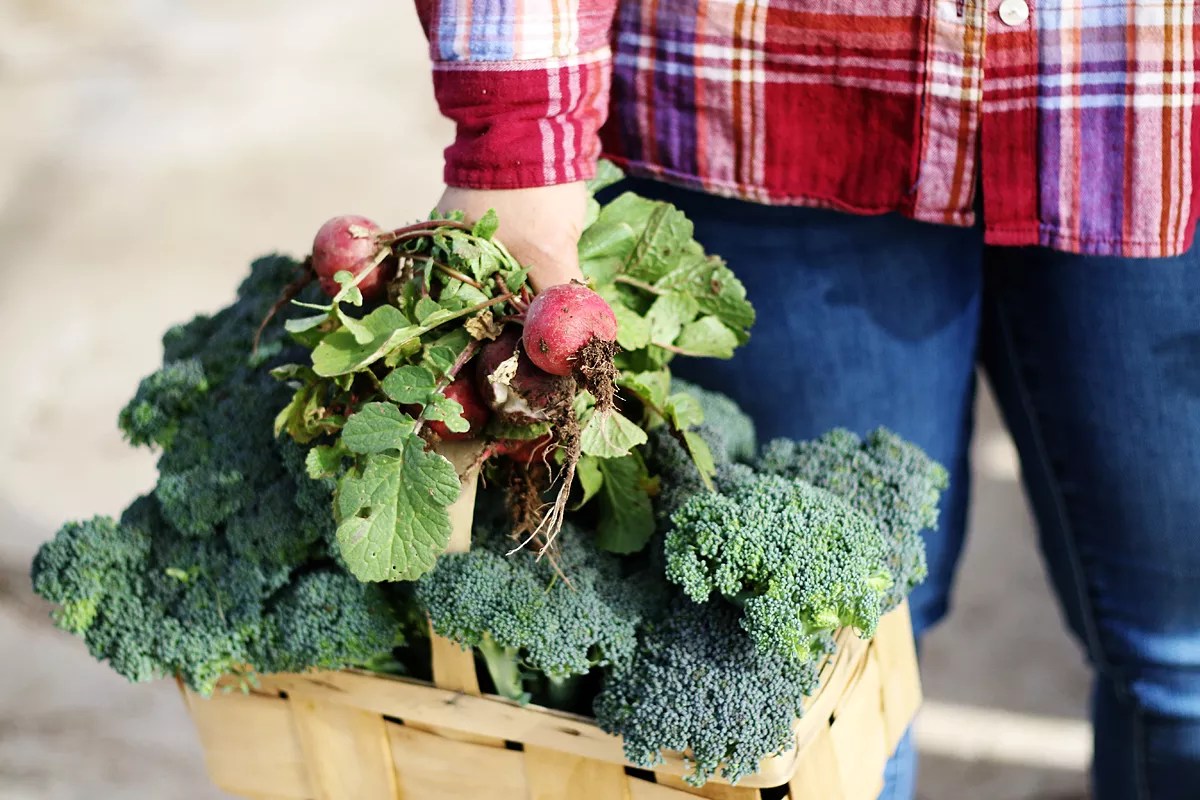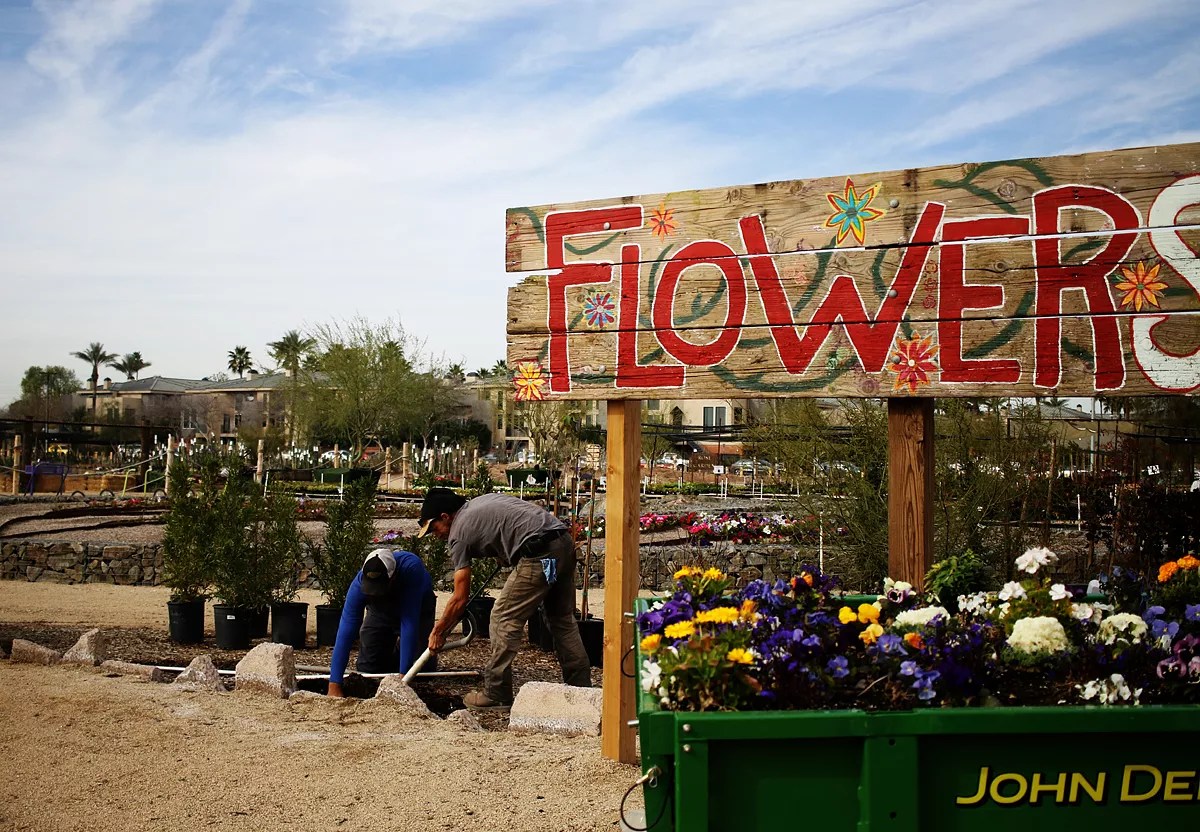
Evie Carpenter

Audio By Carbonatix
Every year, in Project Phoenix, we like to feature a group of enterprising DIY’ers making their creative mark on the city. This time, we’re getting grounded with Growth Industries – profiling a florist, a tomato farmer, a nursery owner, a community plot, and a rogue gardener.
Community gardening is hardly a new big-city idea, although it’s only recently begun to really grow – pun intended – in the Valley. Blame the arid weather, or the city’s landlocked layout, but urban gardens are starting to spring up all over town. Among the higher-profile temporary grow-lots is Agave Farms, an experiment of Agave Environmental Contracting, a local landscape contractor of some renown.
Nestled into an overlay west of the light rail on Central Avenue between Indian School Road and Turney Avenue, Agave Farms has flipped a long-empty lot (most memorably used as overflow parking for Autumn Court Chinese restaurant, which burned to the ground several years ago) and made it green. There, horticulturists are maintaining demonstration gardens of edibles and roses, and arborists are overseeing rows of trees, shrubs, and bedding plants.
Agave grows more than green stuff: Stone statuary and metal fencing are available for sale from local artists, as is soil and some fertilizer. Classes on gardening in the desert have become a mainstay.
The project was born in early 2015, when the owners of the 13-acre Central Avenue lot contacted Agave’s Mike McMahon about a low-rent means of looking after the property.
“We said, ‘How about if we use the lot on an interim basis until you’re ready to sell it?'” remembers McMahon, who secured a temporary land-use permit and something called a “community garden status” from the city.

A basket of produce at Agave Farms.
Evie Carpenter
That spring, Agave staff got busy turning soil, and the result is a slick, neatly fenced, temporary farm and nursery that flung open its gates in June 2015.
McMahon knows nurseries. “Our concept was to grow pretty much any plant life that can thrive in the desert,” he explains. “Native landscaping, cactus, succulents. But we also wanted edibles, herbs, and citrus, and fruit-producing plants.” He and his associates partnered with locally owned Francis Farms to grow roses, and today is offering what he calls “the best selection of roses in the state.”
The City of Phoenix provided no financial incentive for use of the land, which is bracketed by residential properties. But because much of the acreage is in an overlay zoned for commercial use, Agave’s farmers can sell the produce and flowers grown there. And if Agave’s retail operation isn’t recouping its monthly cost, that isn’t the point.
“We know we’ll never get half of our investment back,” McMahon admits. “But we’re turning out some good local, amateur farmers. We’re raising awareness of the proper desert plants to grow here. And if people don’t care about those things, they can buy fresh vegetables and flowers on their way home from work. Which is also pretty good.”
(It doesn’t hurt that Agave Environmental can use its farm as an open-air showroom for its landscaping expertise, besides.)
Neighbors are thrilled with the community garden, and not just because it’s improving their property values.
“It’s more attractive to drive by our farm than an abandoned lot,” McMahon points out.
“We’re servicing nine local neighborhoods, and they’re all welcome to use the lot for public events, for free.” Nearby schools including Metro Tech are using Agave to train students about desert soils and the right time to plant, and showing off the farm’s unique watering techniques – an onsite, man-made lake feeds a drip irrigation system that recycles water – at novice trainings, too.

There’s always work to be done at Agave Farms.
Evie Carpenter
McMahon hopes the idea catches on, but he’s not hopeful. “I’d love to see some of these one-acre lots become agricultural,” he says. “It happens in other parts of the country, in subdivisions. But the average subdivision in Arizona hasn’t changed its profile in 25 years. They’re still putting as many houses on a piece of property as they can, and when the City requires a certain amount of green, it’s usually not the right plants for the desert.”
For now, McMahon is focused on the short-term beauty of his project. “A year from now, there could be a high-rise on this property,” he shrugs. “The entire nature of what we’ve done is meant to be temporary. We’ve planted three- to six-month crops, and our perimeter fencing is mobile. But today, for the time being, we’re a city garden. And that’s all right.”